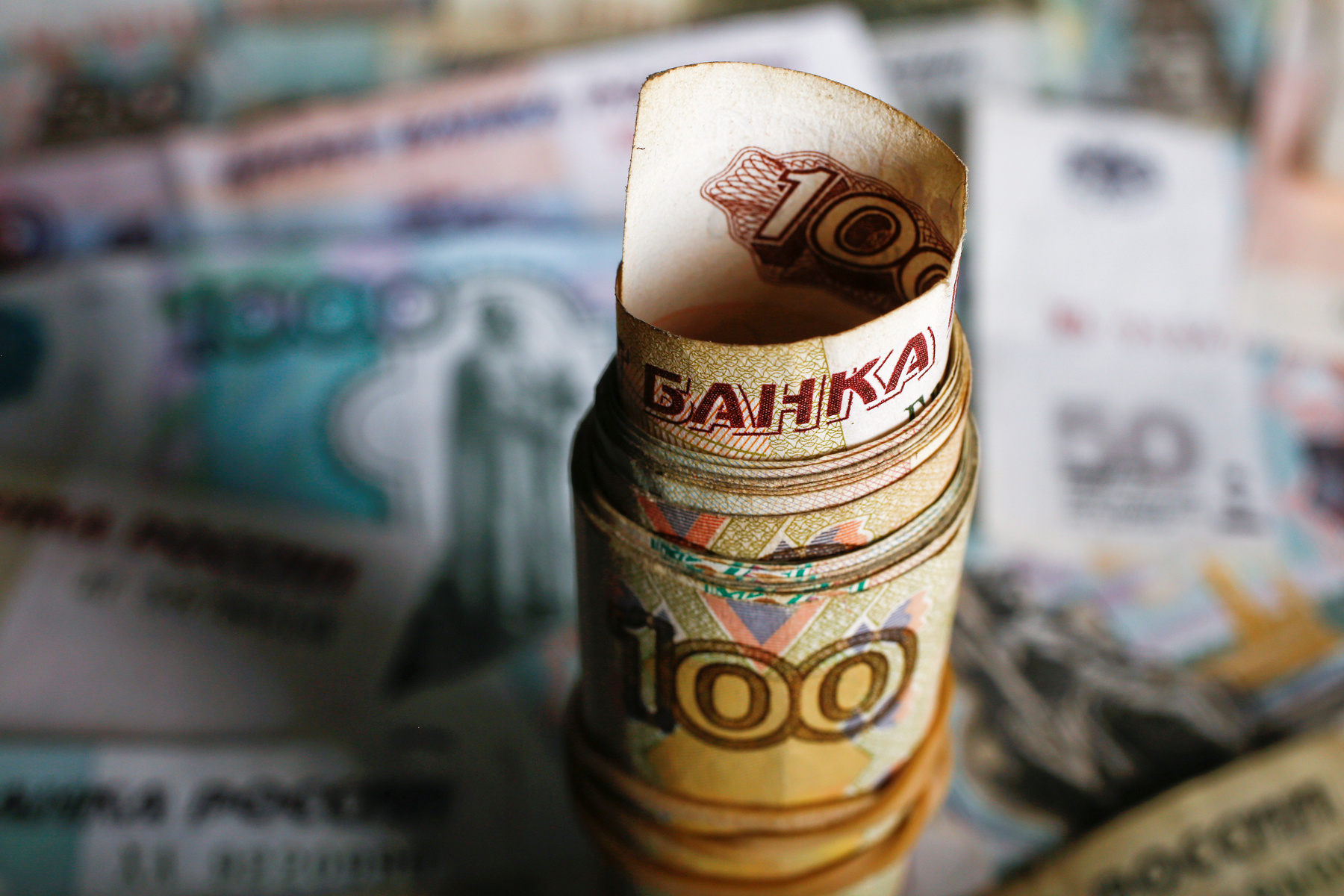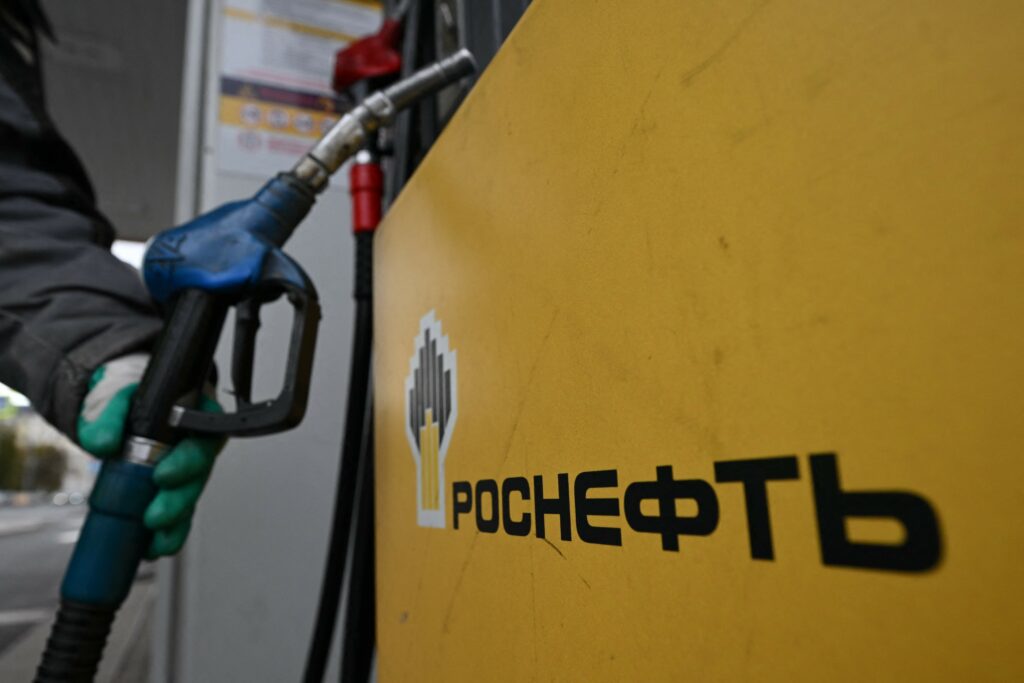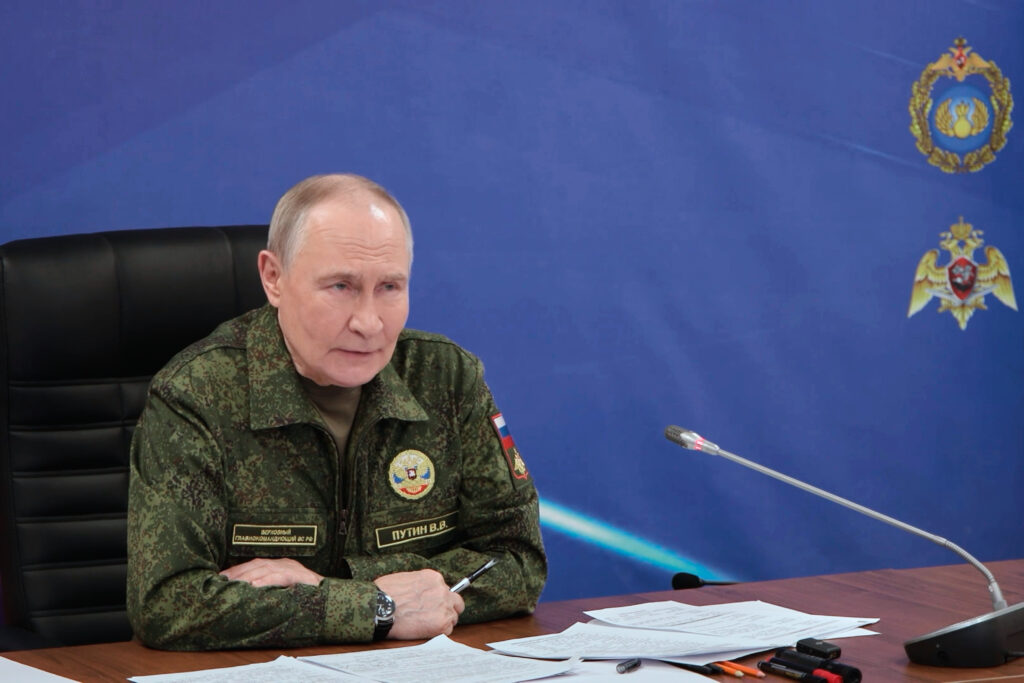Sanctions targeting Russian sovereign debt are once again on the table. The specter of such a move in a piece of 2018 US legislation saw it dubbed ‘the bill from hell.’ Yet today, most analysts seem to view it as something with a lot less menace.
Author and JP Morgan strategist Ruchir Sharma recently made such an argument in the Financial Times and no less an authority than Vladislav Inozemtsev recently argued for Riddle that even “a total ban on transactions involving the Russian foreign debt and the extension of that ban to the U.S. allies will only result in serious losses for the Western financial institutions following the sell-out of this type of asset” while “the Russian authorities will restructure their liabilities, making considerable savings on debt servicing.”
They are not the only ones making such an argument. Russian Finance Minister Anton Siluanov agreed, when he told the Duma’s Financial Market Committee this March that such a move would be merely “unpleasant” this month, reassuring the committee that a solution “will of course be found.”
Sharma noted that since the introduction of the West’s first debt financing sanctions via then-president Obama’s sectoral sanctions in 2014, “Putin has become a model of orthodoxy,” referring to the much–lauded management of macro-economic stability under Central Bank governor Elvira Nabiullina.
They are correct that from a macro-economic standpoint, Russia can well afford to halt borrowing from US, and even wider Western, capital markets. Russia’s international reserves have exceeded its foreign debts since at least January 2019. Though it did record a budget deficit in 2020, it could have plugged this with its reserves rather than borrowing, had it so desired. With oil prices having risen notably in recent months, and analysts’ forecasts holding that they will remain strong for some time to come as the world recovers from the COVID-19 pandemic, the timing is arguably ideal from Moscow’s point of view for it to withstand such sanctions.
Nevertheless, the argument that the US could impose sovereign debt sanctions on Russia with little political impact is wholly misguided. History proves as much.
With no resolution in sight in the most recent ban on sovereign debt, against Venezuela – with the Trump Administration first targeting new Venezuelan debt in August 2017, then barring the trading of existing debts both from the sovereign and its state oil company in May 2018 – it is worth recalling that a sudden abrogation of capital market ties has long and often complex side effects.
Russia is no stranger to this. German Chancellor Otto von Bismarck’s 1887 ‘Lombardverbot’ that banned Russian securities including debt from being sold in Germany helped push the Kremlin into heavy borrowing from the French market. This is in turn sealed the Franco-Russian alliance in the lead-up into World War I. The potential parallel with China today is obvious.
However, that is by no means Russia’s only experience with such difficulties. Upon coming to power in 1917, the Soviets repudiated Russia’s imperial debts, promulgating an economic crisis in France and prompting the wider West to intervene in the Russian Civil War and then to hold off recognition for a decade.
If the sanctions include a ban on secondary trading, and the inability to settle the debt could have long-lasting impacts. The Bolshevik repudiation had long and lasting impacts. Disagreement between Russia and her former Allies played a role in scuppering the 1922 Genoa Economic and Financial Conference meant to deal with the legacies the Versailles Treaty, though Germany and Russia did sign the Rapallo Treaty on their own debt claims, later smoothing over the issue in negotiations of the 1939 Molotov-Ribbentropp Pact. Before that deal was signed, Soviet Foreign Minister Vyacheslav Molotov and his predecessor Maxim Litvinov had also sought to negotiate a pact with France and Britain, which infamously failed; records from then-US Ambassador to the Soviet Union Joseph Davies show debts were a key sticking point.
While a new Russian debt ban would be unlikely to have implications as wide-ranging as those from Russia’s 1918 default, which Hassan Malik’s 2018 book Bankers and Bolsheviks convincingly argues was the largest sovereign default of all time, it would nonetheless likely become a, if not the, core sticking point blocking any Russian-Western mediation for the foreseeable future.
In other words, sanctioning Russian debt would be the equivalent of a ship becoming lodged in the Suez Canal; other issues would be unable to advance around it.
There are more examples that support this argument than just the aforementioned Venezuelan bypass. A more recent example is Sudan, where the World Bank and IMF announced finally cleared its arrears to the international lenders of last-resort on 26 March as part of a debt restructuring package being shepherded by Washington, enabling it to return to Western capital markets.
Sudan had been in default since the early 1980’s, but because of Sudan’s 1993 inclusion on the US’ state sponsors of terrorism list, investors were unable to negotiate over these debts until the removal of this designation in February 2017. The effort to restore Sudan’s access to international capital markets began shortly thereafter, though it only really gained traction after longtime dictator Omar Bashir was ousted following the Sudanese Revolution in 2019.
If the US does move to sanction Russian sovereign debt, it may well prove to be impossible to negotiate a lifting of the measure as long as Vladimir Putin remains in office.
The risk of major political fallout from such a move is raised even further by how Russia has been tinkering with the language of its Eurobond contracts, in a manner that raises the risk of sizable losses to Western holders of Russian Eurobonds issued since 2016.
The Biden Administration does have the potential to limit the scope of Russian sovereign debt sanctions, which in turn would likely mitigate against their impact. In August 2019, then-president Donald Trump belatedly authorized sanctions under the US’ Chemical and Biological Weapons Control and Warfare Elimination Act of 1991 (CBW ACT), including barring US banks from primary dealings in the Russian state’s issuance of new foreign currency loans.
As with almost all of Trump’s ‘Russia policy,’ the move had no real impact at all.
The Biden Administration, despite its more hostile approach to all things Moscow, could look to repeat the trick. RBK’s Ivan Tkachev, one of the most astute watchers of US’ Russia sanctions policy, recently noted that the Biden Administration could simply sanction US persons from dealing in primary issuance of Russia’s ruble-denominated debt as well. This would mean the risk in a freeze in the foreign dealings of Russian debt would be averted.
Freezing trading on secondary markets, however, is such a greater risk not only because it complicates any potential Russian attempt to reprofile its debt dramatically, even if it can afford to do so, but also because it creates an aggrieved group of jilted creditors. One need only look at the French bondholders’ response to the aforementioned Soviet default, or more recently at those stuck holding Venezuelan debts to see how such actors can wield political influence and seek to shape their country’s policy around maximizing their individual returns.
The Biden Administration would be wise to act carefully. Conversely, the Kremlin should be less flippant about the potential impact of such a move. Failure to do so could cause both parties to escalate beyond their intentions.
Inozemtsov may well be correct to argue that “by dealing a blow against Russian sovereign debt Western politicians will not inflict much damage to Russia’s finances” as they presently stand. However, the long-term political ramifications of a ban on trading Russian sovereign debt would be likely to constrict both Russia’s finances in the event of a future economic crisis, and constrain its relations with the West for as long as they remained in place.










